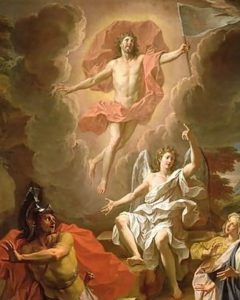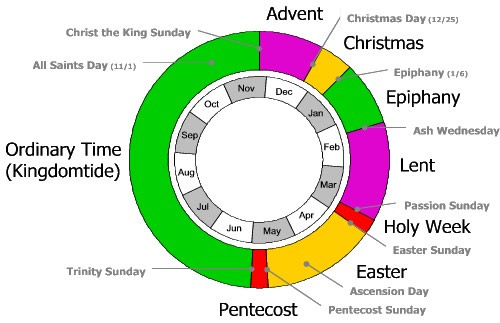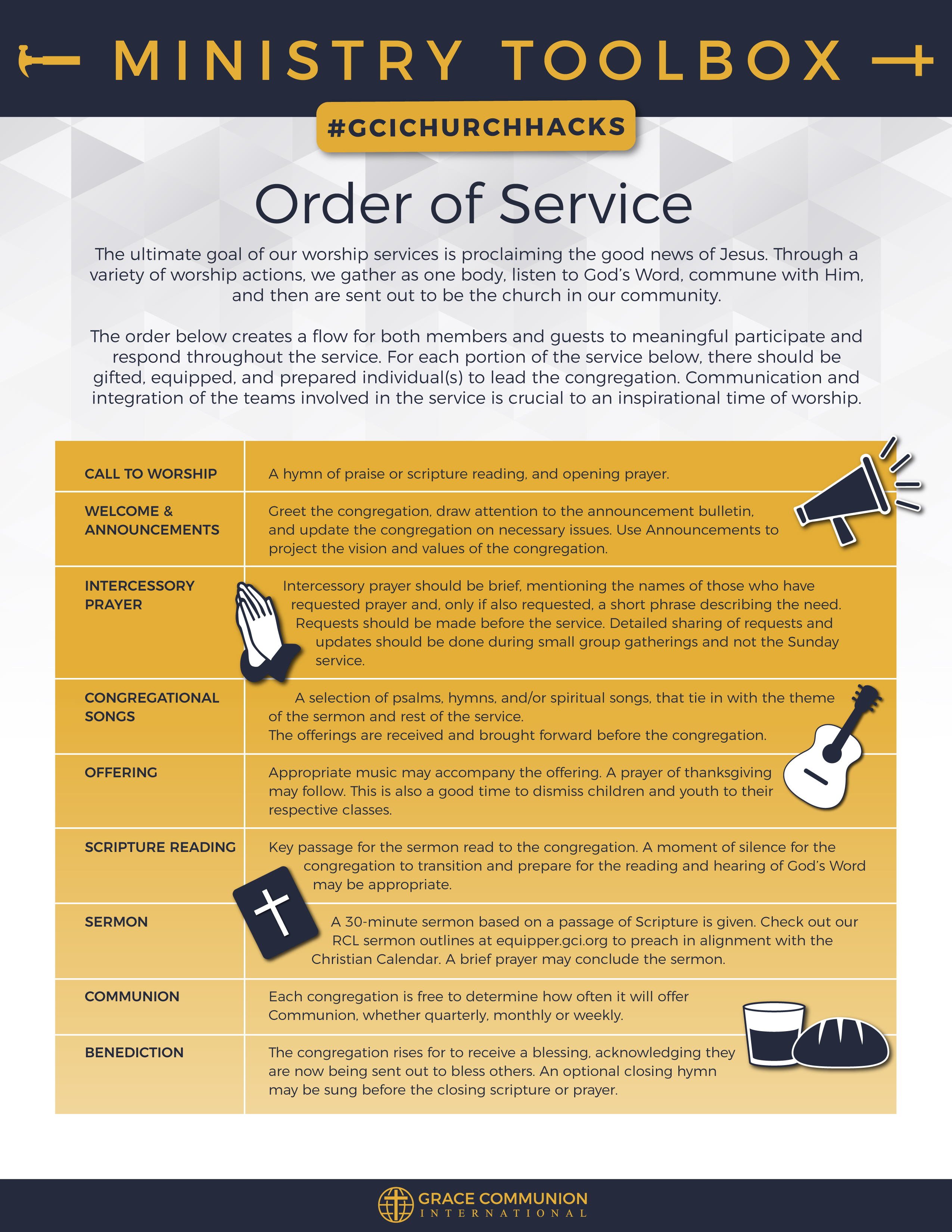Here is part one of The Church, the Kingdom and Human Government—a three-part essay from Grace Communion Seminary President Gary Deddo (click here for part 2, and here for part 3).
Introduction

(public domain via Wikimedia Commons)
Scripture declares that the resurrected and ascended Jesus Christ is Lord and Savior of all the cosmos! This singular revelation, coupled with the whole of the Scriptural revelation, sheds light on everything—on all of life and all history (and beyond!). Who Jesus Christ is, what he has done, is doing and will yet do as Creator and Redeemer, has everything to do with everything!
As Christians, we apply this insight to our life together as the body of Christ, the church, and then to the other spheres of life beyond the boundaries of the church. In doing so, we are thinking out of a Christ-centered worldview [1]—a way of seeing all spheres of life in accordance with the mind of Christ. A primary challenge in this is to discern Christ-centered answers to two important questions:
- Since Jesus Christ is Lord and Savior of all, what should the message of the church be to the world outside the church?
- As Christians, how should we live in relationship to the spheres of human life that surround the community of the church?
Properly answering these questions necessitates having a Christ-centered, biblically-informed understanding of the nature, purpose and interrelationships of three key spheres:
- The church of Jesus Christ.
- The kingdom of God.
- Human government outside the church.
How we understand these spheres and their interrelationships shapes how we live in the world as followers of Jesus. Sadly, some have misunderstood what the Bible teaches and, consequently, have become cynical or hopeless noting that neither the church nor any human governments are the ideal. Others have compromised their faithfulness to Jesus and the church, seduced by false hopes and catastrophic fears promulgated by worldly ideologies.
To avoid these pitfalls, it is vital that we think carefully about this topic and not assume that what we read and hear are true. As of yet, a clear consensus within the church concerning how to put all this together has not been achieved. That lack seems to be due to the failure of much teaching to take into full account the triune nature of God, the return of Jesus (bringing about the fullness of the kingdom), the nature of the church, and the nature of human governments. Thus, there has been a failure to account for the purpose and place of each of the three spheres in God’s plan, leading to the blurring of the biblical distinctions between them. This has, in turn, led to the church making these mistakes:
- Losing track of its God-given purposes and proper boundaries.
- Regarding itself as the kingdom (rule and reign) of God, standing within the larger world.
- Setting itself up as the ideal human government, standing over other governments, assuming that the church is the kingdom of God on earth.
- Promoting certain human governments as being the kingdom of God on earth with universal rule over all other human authorities, thus ceding to human government what belongs to God alone.
When these and similar mistakes have been made, the church has lost its saltiness (by which it seasons the world) and its voice (by which it proclaims to the world the true hope of humanity). In this essay, we’ll seek to avoid these mistakes by defining the God-ordained roles for and the interrelations of the church, the kingdom of God, and human government. In doing so we’ll draw on the insights of several theologians who, sharing our incarnational Trinitarian foundations, articulate a theological synthesis of the biblical revelation concerning the topic. Though it can’t address every related issue, we’ll seek in this essay to provide a succinct outline of a Christ-centered, gospel-shaped and biblically-informed way to approach the topic. Let’s begin by addressing a vital point: The church is not the kingdom of God.
The church is not the kingdom
Though not entirely separate, the church and the kingdom of God are not the same, and must not be confused. Since Jesus is Lord of both, believers (members of the church) do belong to the kingdom. However, they cannot participate in the kingdom in the same way they participate in the church, because the fullness of the kingdom is yet to come. In the meantime, the church operates within “the present evil age” (Gal. 1:4). During this “time-between-the-times” (between Jesus’ first and second advents), it does not seem that all things are in subjection to Christ’s lordship (Heb. 2:8). Therefore, the church’s basic orientation to the kingdom is one of expectation and hope, awaiting the coming fullness of the kingdom (Matt. 25: 34; Luke 22:18; James 2:5; 1 Thess. 4:15; 1 Peter 1:3, 13; Titus 2:13).
For now, the church gathers to worship the triune God. These gatherings include those who have been incorporated into the body of Christ by receiving, as a gift, the “down payment” (or “first fruits”) of the Holy Spirit. Believers are “sealed” with the Holy Spirit, who is given to them based on Christ’s finished work. Those indwelt by the Spirit have met the King and are enjoying daily personal fellowship and communion with God through the Spirit. In that way, they are experiencing the first fruits of the coming kingdom, which already has drawn near. They worship God in Spirit and in truth, receiving the fruit of the Spirit into their lives, and serving one another using the gifts the Spirit distributes to the body of Christ as he wills.
The promise made by Jesus of the coming of the Spirit to form and be with the church has come to pass. However, the promise Jesus made regarding the kingdom has largely not come to pass. So, during this present age, the church waits patiently and with great expectation, for Jesus’ bodily return to earth to usher in the kingdom’s fullness. Because Jesus is now bodily absent from earth, his kingdom is yet to come—his rule and reign are yet to be fully manifested here on earth. That fullness is only possible when he will be personally present to reign. Therefore, the church does not, indeed cannot, experience the fullness of Christ’s rule and reign here and now. That is why we pray, as Jesus taught us, “Thy kingdom come” (Matt. 6:10, KJV).
During this age, the church does not yet exemplify the total and final reality of the kingdom of God. Neither Jesus nor his select apostles expected that it would. Rather, the church is being continually sanctified by the ongoing ministry of the Holy Spirit in accordance with Jesus’ high-priestly prayer in John chapter 17. As Jesus noted in the parable of the wheat and tares (Matt. 13:24-30 KJV), the church in this age is far from sharing in the fullness of Christ’s rule and reign. The assembly of the church includes both believers (wheat) and not-yet-believers (tares)—even some tares opposed to Christ. However, the church does provide concrete (albeit imperfect) witness to Jesus, proclaiming the sure, future coming of his kingdom in all its fullness.
The kingdom: already-but-not-yet
Though the fullness of the kingdom is yet to come, it is present already in a limited way. Through knowing Jesus and being, by the Spirit, in a right relationship with him, the church experiences something of Christ’s rule and reign in this age. In this way, the church is said to be a “sign” (or “parable”) of the coming fullness of the kingdom of God. At the present time, the kingdom is mostly hidden, and so its coming fullness is the Christian’s hope. The church does enjoy fellowship with the King of the coming kingdom. It does participate (has “koinonia”) by the Spirit in the kingdom that is yet coming in fullness. That participation now is a sign—a real, actual pointer to what is yet to some. As a sign, it is not itself what it points to, namely the promised fullness of the kingdom.
The New Testament uses the idea of signs frequently. It speaks of believers having an inheritance, a down payment, the first fruits, and a sealing. As those living in the “time-between-the-times,” Christians do not yet possess in full what these signs portend—we don’t yet have what we will inherit, the full payment, the full harvest, or what is yet to be unsealed. Thus we understand that the church, being a sign of the coming kingdom, participates in the kingdom now in part, but not yet in its fullness. [2]
For Christians, the kingdom is regarded as an inheritance that will be received when Jesus returns and sets up the fullness of the kingdom. At that point in time (which Scripture calls “the end of the age”) all will necessarily recognize Jesus as Lord and Savior—even those who refuse to enter his kingdom (Phil. 2:9-11). At that time, all powers and authorities will be subservient to him and his goodness and grace (1 Cor. 15:25-28). Evil will be no more. Every tear will be wiped away (Rev. 7:17; 21:4) and all things will be made new (Rev. 21:5). Those who presently believe in Christ, acknowledging him as King and Lord of all, hope and pray for the coming fullness of his kingdom, and they look forward to entering it. As noted in Jesus’ teaching and throughout the New Testament, that coming is regarded as a future event, which will occur only at the end of the age. Meanwhile, believers participate in Christ’s assembly, the church.
The church: commissioned to proclaim, not be the kingdom
Jesus has commissioned the church to preach the kingdom of God as the world’s ultimate hope. Note that the church does not preach the church—instead it proclaims the ultimate hope of the church. Note also that the church is not commissioned to declare the church to be an ideal social or political entity. The church is not the kingdom and it ought not try to be or set up the kingdom.
The church has not been commissioned to try to establish an earthly ideal prior to Christ’s return. This is true whether we’re addressing the role of the church in society, or the church taking over the role of human governments. The gospel is not a message of humanistic idealism achieved with a little outside help from God.
Jesus and his apostles taught that the church must pray to God, asking him (not the church) to bring about the arrival of the kingdom on earth so that his will would be done fully on earth as it is in heaven. Jesus taught that his kingdom was “not from this world” (John 18:36, NET) and its coming is not something that can be observed (Luke 17:20). Thus the kingdom of God cannot be identified simplistically with any earthbound thing, event or pattern of events.
The kingdom of God does not arise from within this present evil age. It does not develop out of the systems within our fallen world. Rather it is given from above (by God from heaven) and comes to earth with Christ’s coming down from above, from where he now is seated in the presence of the Father. Until that coming occurs, the church acts here and now with hope and expectation as it waits with patience.
Following Jesus’ ascension and awaiting the sending of the Spirit, the disciples were counting on Jesus’ promise that the kingdom was coming (though Jesus had not told them when). Just before the ascension, they had pressed Jesus for the details, wondering if the kingdom would arrive immediately, perhaps with the coming of the Spirit. In reply, Jesus revealed three things about the kingdom of God:
- That it was coming, thus indicating that it was not already fully present.
- That the Spirit would definitely come to them soon, while the kingdom, in contrast, would arrive at an indefinite future time—a time unknown, even to Jesus.
- That though the coming of the Spirit and the coming of the kingdom are related, they are not the same thing, and so will be manifested at separate times.
As we know, the Spirit descended on Pentecost and indwelt those who received him. That great event inaugurated the church, not the fullness of the kingdom. The church, rather than being the kingdom, is a “sign” of the kingdom, for in the church the King is recognized even if the extent of his kingship (his rule and reign, which constitutes the kingdom) is not fully evident to all here and now.
So, while the Spirit became present and active in a new way at Pentecost, the kingdom did not come—it was not set up in its fullness on that day. However, the church was brought into being that day and its presence on earth continues. The Spirit came but Jesus, the King, ascended.
In reciting the Lord’s prayer and otherwise, the church has always prayed for the kingdom to come. Doing so was in accordance with what Jesus taught his disciples, for the kingdom is a disciple’s ultimate hope. In hope, we long for Jesus’ kingship to be fully manifested, operative and experienced in all the world (Luke 11:2). Beginning with Pentecost, the church was clearly established on earth and could be observed. Believers clearly are participants in the church as members of the body of Christ, here and now (between the times). The same cannot be said about their participation in the kingdom of God.
Before the arrival of the kingdom in all its fullness, the church exists on earth in particular times and locations. In his letters, Paul addresses them as such: “To the church gathered at [name of city or region].” The church is the visible assembly of those incorporated by the Spirit into the body of Christ—those called and gathered for worship. They are also those who are then sent out to share, with Christ, in the Father’s mission to the world by the Holy Spirit. They fulfill this calling by proclaiming the King and his coming kingdom.
Notice that the church does not go out and proclaim itself. There is a distinction to be made here. The kingdom is the hope of the world. That cannot be said about the church. Instead, the church is a humble witness to (sign of) the kingdom. Yes, those who are incorporated into the church by the Spirit will experience something of the benefits of the kingdom now, though the kingdom is yet to come in its fullness.
The calling (vocation) of the church is not to be the kingdom, but to bear witness in word and deed to Jesus and to the hope of his coming kingdom. That hope will be fulfilled only when Jesus returns. The kingdom, which is hoped for, is not and cannot be seen here and now:
For in hope we were saved. Now hope that is seen is not hope. For who hopes for what is seen? But if we hope for what we do not see, we wait for it with patience. (Rom. 8:24-25, NRSV)
In the present age, the church with its members has a personal relationship with the Triune God that is centered on worship and witness. All that Christ has done for us is still being worked out in us as we continually hear the Word of God and by the continuous ministry of the Holy Spirit, who leads the church on mission, witnessing to Christ and his kingdom. As the body of Christ, the church, we have not reached the goal, but we are on the way. We know the Lord and receive from him his grace, peace, joy and comfort, even before the complete rule and reign of Christ becomes evident. As believers, we are in real, daily and dynamic personal relationship with the head of the body (Christ) by the Holy Spirit.
By God’s grace, the church as a community and as individuals is given the privilege of bearing witness to who Jesus is and to the hope of his coming rule and reign, which will range over the whole earth and the entire cosmos, establishing a new heaven and earth—something that has not yet occurred. It should also be noted that the existence of the church is part of that witness to what is yet to come, namely the kingdom of God. Lord, speed that day!
Endnotes
[1] Click here for a series of articles on the topic of worldview conversion in GCI Equipper.
[2] In part 2 of this essay, we’ll explore in greater detail how the church, in a limited way, participates now in the kingdom of God by embodying partial, provisional and temporary signs of the kingdom’s coming fullness.












